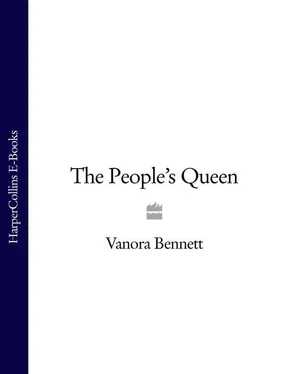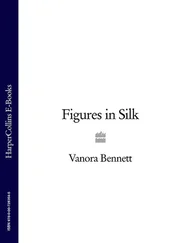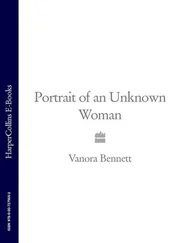Tremulously, Kate laughed. The woman nodded approvingly. She took a step forward and patted the bump. ‘On your own out here, are you?’ the stranger said, not unkindly.
For just a moment, Kate had another faint shiver of worry at letting an incomer know just how vulnerable she was. Then she thought: I don’t care if she does know. She can see I’m on my own whatever I say. She’s got a kind way with her. I need to keep her here.
The woman wasn’t from round these parts, that was for sure. Not with that sharp quick way of talking, words all bitten into each other. But she was another living human. ‘Tom’s dead,’ Kate blurted, as trustingly as the girl she’d been before she’d married him, on her fourteenth birthday, six months ago, before the pregnancy showed. ‘Mum…we buried them. But now Dad…he went on the procession. With Sir John. The priest. He was only supposed to be gone an hour or two.’
She was surprised how calm and level her own voice sounded. She knew Dad was dead too, really. She was still scared, but it was ordinary fear now – the watchfulness of two foxes meeting in the forest. She was surprised how grateful she was to this woman just for being here with her.
The woman gave her a bright little look, and shook her head. ‘Tom was your man, was he?’ she asked, still shaking it, as if the news was a surprise and a sorrow, though one borne lightly. ‘And you’d be who, then…?’ She lifted an enquiring eyebrow.
‘Kate,’ Kate stammered. ‘They call me Young Kate.’ She’d never had to explain herself. She’d never met someone who didn’t already know her.
‘Well, wouldn’t you know it,’ the woman said. She put down her bundle. There wasn’t much in it, maybe a change of linen and a piece of bread, it was that light. She was still shaking her head, as if she couldn’t believe something. ‘My Tom’s little wife,’ she said. Then, to Kate’s shock, she leaned forward and pinched Kate’s cheek. ‘A right little beauty he got himself and all,’ she added with a sudden, toothy grin.
Kate stepped back, touching her cheek. That jocular pinch had been quite hard. She didn’t know if she liked the growing brightness in the woman’s voice. Faintly, she said, ‘Your Tom?’
‘Cousin,’ the woman offered. Nothing more. She glanced behind Kate, behind the cottage, behind the open-sided barn where the tiles were drying, to the kiln. A knowing sort of look. In her flat quick voice, she added, ‘You must have heard of us. My dad’s the one used to take the tiles from the kiln there to market. Way back, we’re talking now. Must be twenty years ago.’ She nodded again. Her story was taking shape. She was gaining fluency. ‘Married a London girl, my dad, didn’t he? My mum, that was. Stayed on with her family. Liked the hustle and bustle of town life. Always talked about home though. Brought me here once, when I was a kid. Your Tom and me, thick as thieves we were, back then. Climbing trees, swimming in the river’ – she gestured at the landscape – ‘smoking out bees for honey. Nicking the broken bits of tiles for skimming stones. A proper little terror he was in those days. Oh, the things he taught me.’ She went back to shaking her head, with that tough smile pinned on her face and her bright little eyes fixed very hard on Kate’s.
Part of Kate knew there was something wrong. The more she thought about it, the more seemed wrong. Tom had never mentioned having blood in London that Kate remembered. And they’d surely never been kids at the same time, these two. Tom must have been a good ten years younger. Mustn’t he? Plus which, most importantly, it wasn’t ever Tom’s dad, who’d died years ago, who’d worked out what you could do with the clay. The tiles were her dad’s business. So there must be a mistake. The woman must be mixing her up with someone else. Some other Essex village. Some other tilery. Some other Tom. But if she pointed that out the woman might go. And the baby was coming, and Kate’s back was aching. She told herself: He wasn’t a talker, Tom. Perhaps he just never had a chance to tell me about a family in London.
‘What’s your name?’ she said.
The woman only grinned wider. ‘Alice…Alison,’ she said, as if she hadn’t quite decided. ‘You just call me Aunty.’
Then Aunty put a bony arm around Kate’s shoulder and began walking her inside her home. ‘Come on, love,’ she said, strangely tender. ‘Let’s us get a fire going. I’m starving, and you need to feed that baby of yours, don’t you?’
The next morning, after the baby came, they had eggs and a bit of the pound of bread that was already drying and crumbling away and a few dandelion leaves that Aunty picked and some onion slices from the store. The little girl had been washed and wrapped up in the waiting rags, and Kate, also clean, was lying, still weak and aching and not quite sure what was going on, but with radiant happiness mixed up with her exhaustion and lighting up her plump little face. She held the small breathing bundle in her arms, gazing at her with the disbelief of every new mother, even in circumstances less strange than these, seeing Tom’s eyes, and Mum’s snub nose, and her own dark hair.
Aunty had fed the hens and made sure they were secured. (‘Wouldn’t want them to go astray, now, would we?’ she said with gallows humour, as if they were hers as much as Kate’s. ‘Because God only knows where we’d be for food without them eggs.’) Then she sat down on the stool by Kate’s straw bed, in the band of light cast by the propped-open door, and looked proudly at her charges.
Aunty was tired, after the night of blood and buckets and water and yelled instructions to push. She could feel her eyes prickling under their scratchy lids. But it had all gone well in the end. Alive, all of them. And that was something, at least, she thought. Another one in the eye for the forces of darkness.
Then she began to talk, still very calmly, in a quiet, reminiscent, dreamy monotone, twitching her fingers through the rents and mends in her thin robe, about what she’d walked away from in London, and what she’d walked through on her tramp through Essex. Because she could see this poor little scrap didn’t know; didn’t have the least idea.
Death hadn’t just come stealing into this one village like black smoke. Whatever this girl thought, it wasn’t the sins of Kate’s mum, or dad, or Tom, or the no-good priest she kept going on about, that had made an angry God decide to smite them all dead, or whatever nonsense it was the priests kept spouting (till they died too).
There were people dying in their hundreds everywhere, Aunty said gently, trying not to shock the girl too much, while not blanketing her in mumbo-jumbo either. There were bodies in the lanes all over Essex: men, women, entire processions of penitents, lying where they’d dropped. Dead people, dead animals. In London they were piling up corpses in burial pits until the pits overflowed before filling them in, a bit. One pit would fill up with the dead before anyone had time to dig the next. Cadavers were dragged out of homes and left in front of the doors. London was no place to be while there was that going on, Aunty said. The air was too foul. They said husband was abandoning wife, wife husband, parents children, and the young their old folk. If you wanted to live, you had to walk. And she wanted to live.
‘So I thought, come and look up Tom and his family,’ she said, going back into the story from last night, about being some kind of relative.
If the girl was waiting to hear whether Aunty’s own family in London had all died, or if she’d been one of the ones who abandoned their own to save herself, she didn’t ask. Just sat there, round-eyed, open-mouthed, gawping. Aunty couldn’t tell if she was even really taking it in. Even if she was understanding the words, Aunty thought, it was probably too much to absorb their meaning all at once. Even for her, who’d seen it with her own eyes, it was hard enough to believe. So Aunty left the past in the past, and didn’t bother with her own story: the kids she couldn’t bury; the priest who wouldn’t say a Mass over them without money Aunty didn’t have. A shrug is all you can offer Fortune, in the end, when nothing will work out; and a calculation: they’re dead; nothing more you can do for them. You’ve got to look out for yourself. Time to go. Aunty just fiddled with the wiry ginger curls under her mended kerchief and went on with her sing-song account of the horror in the rest of the world.
Читать дальше












